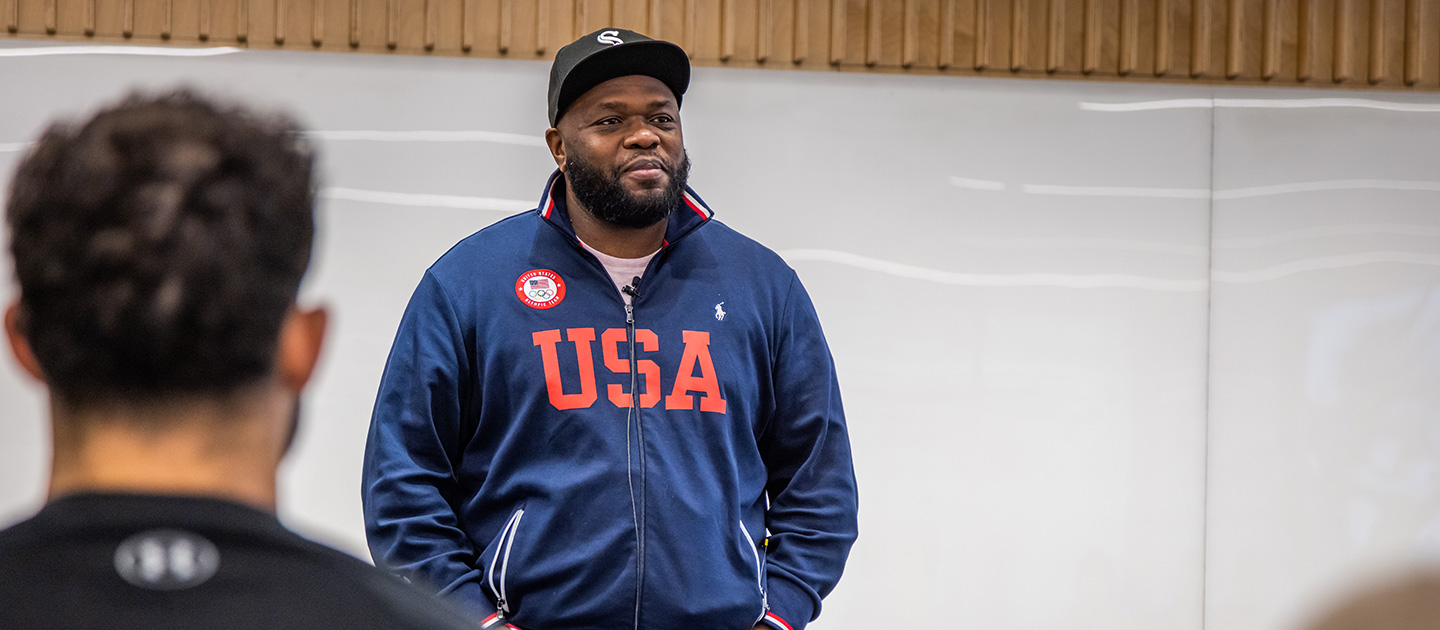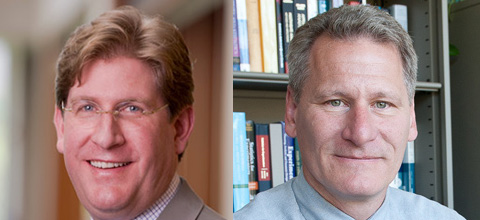Arshay Cooper Shares Inspirational Life Story
Cooper’s talk coincided with the launch of the Personal Development StudioLab

To accomplish everything Arshay Cooper has, desire isn’t just important. It’s necessary.
Growing up on Chicago’s West Side, Cooper lost friends to gang violence. His mother was addicted to drugs. He’s never called anybody ‘Dad.’ He failed eighth grade. He was told by a teacher he would die before reaching 18. He grew up believing God existed everywhere except the West Side of Chicago.
One day, Cooper was sitting in a classroom and a guest came in, holding money in his hand and asking who wanted the cash. Everybody – including Cooper – screamed they wanted it, but one classmate ran to the front of the room and grabbed the money.
That moment left a mark on Cooper.
“He said, when you want something, like really want something, if you want to win a gold medal, you want to go to college, you want justice, freedom, or whatever you want for your community, you cannot just talk about it,” Cooper said. “You can’t just shout about it. You can’t scream about it. You can’t tell your friends about it. But you have to get up and go get it, because if you don’t, someone else will. The idea that someone else has to get me something died that day.
“I said to myself, there would be no distance between my dreams and my actions, that I would always close the gap. I had a lot of fire and I was ready, but the question was, how do I allow this fire inside of me to shine brightly?”
Cooper told his life story during “A Day with Arshay Cooper: How Can We All Row Together,” a series of events held January 19 in celebration of the launch of Northwestern Engineering’s Personal Development StudioLab.
During a flash forum talk, Cooper shared his life-changing experience on the first all-Black high school rowing team at Chicago’s Manley High School and how it can serve as motivation for young people of color to pursue their dreams. His experience inspired his book, A Most Beautiful Thing, and later a film by the same name, produced by NBA stars Grant Hill and Dwyane Wade and Grammy Award-winning artist 9th Wonder, and directed by award-winning filmmaker and Olympic rower Mary Mazzio.
A recipient of the Golden Oar, Cooper also recounted how his life’s work extends well beyond rowing.
Cooper spent two years in AmeriCorps and then attended Le Cordon Bleu, subsequently becoming a chef for World Wrestling Entertainment and Warner Brothers. But eventually, Cooper shifted to working with young people, coaching rowing at the Chicago Urban Youth Rowing Club, and working as the youth program guidance counselor for Victory Outreach’s Midwest/Gulf Coast region. He has also started numerous rowing programs for low-income youths, and mentored kids to improve their lives.
Cooper has even gone on the water with police officers in disadvantaged neighborhoods to try to teach them to row and have conversations about how area residents live, a topic especially poignant because “A Most Beautiful Thing” was released shortly after George Floyd was murdered.
“I’m not going to ask you to build a bridge to freedom because it’s a lot of work. It takes a long time and it’s scary,” Cooper said. “But what I will ask everybody in this room, is to lay one brick as perfect as they can, and we’re going to have that bridge faster.”
About the Personal Development StudioLab
Codirected by Joseph Holtgreive, assistant dean for undergraduate engineering, and Bruce Ankenman, professor of industrial engineering and management sciences, the Personal Development StudioLab is a space where students develop and practice their life approach, as they hone their craft and connect with themselves and others, to create a better future.
The StudioLab supports the McCormick School of Engineering and Northwestern University by providing students with courses, opportunities, resources, and events that increase awareness, understanding, and healthy responses to their physical, emotional, and cognitive experiences. Through this environment, the StudioLab helps transform students into mindful, curious, whole-brain thinkers who integrate all elements of their being to best clarify, frame, and address the important and complex problems of life in a meaningful and fulfilling way.
